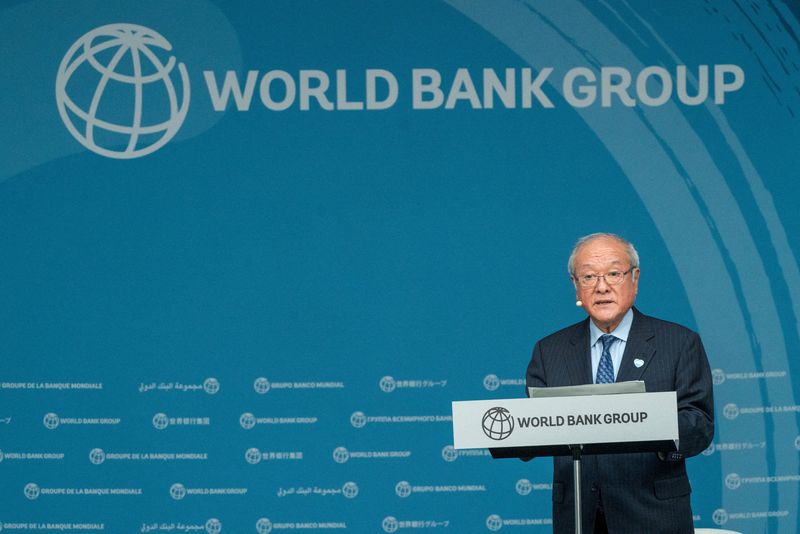By Kentaro Sugiyama and Leika Kihara
TOKYO (Reuters) -Japanese authorities will take necessary actions on currencies, Finance Minister Shunichi Suzuki said on Thursday, signalling readiness to intervene in the exchange-rate market after the yen's slide to a fresh 38-year low against the dollar.
"It's desirable for exchange rates to move stably. Rapid, one-sided moves are undesirable. In particular, we're deeply concerned about the effect on the economy," Suzuki told reporters.
"We are watching moves with a high sense of urgency, analysing the factors behind the moves, and will take necessary actions," he said.
Chief Cabinet Secretary Yoshimasa Hayashi also told a news conference on Thursday that Tokyo will take "appropriate" action against excessive currency moves. He declined to comment on yen levels and whether authorities would intervene.
The yen stood at 160.52 per dollar on Thursday, remaining a fraction away from the 38-year low of 160.88 hit on Wednesday.
Japanese authorities are facing renewed pressure to combat sharp declines in the yen, which has fallen 12% so far this year against the dollar as traders focus on the wide interest rate divergence between Japan and the United States.
The yen's fast-pitch decline below the key 160-to-the-dollar level is heightening market alarm over the chance of imminent yen-buying intervention.
"At this point, authorities are probably starting to worry not just about the speed but the level," Masafumi Yamamoto, chief currency strategist at Mizuho Securities, said in a research note. "Unless they intervene, there's a risk the yen will slide toward 162."
But analysts doubt whether jawboning, and even intervention, can reverse the weak-yen tide that is driven mostly by uncertainty over how soon the U.S. Federal Reserve will start cutting interest rates.
The Bank of Japan has dropped signals of an imminent interest rate hike, though any increase in the current near-zero short-term policy target will still keep Japan's borrowing costs very low.
Still, the yen's slide could heighten pressure on the BOJ to accompany a scheduled announcement of a quantitative tightening (QT) plan with a rate hike at its next policy meeting on July 30-31, some analysts say.
Speaking after a meeting to approve the government's monthly economic report, Economy Minister Yoshitaka Shindo said on Thursday that policymakers must be vigilant to the risk of a soft yen pushing up inflation through rising import costs.
"A weak yen is among factors that push up inflation, so we will closely watch the currency's moves in guiding monetary policy," BOJ Deputy Governor Shinichi Uchida was quoted as saying at the meeting, according to a Cabinet Office official who briefed reporters on the discussions.

Tokyo spent 9.8 trillion yen ($61 billion) intervening in the foreign exchange market at the end of April and early May, after the Japanese currency hit a 34-year low of 160.245 per dollar on April 29.
($1 = 160.4800 yen)